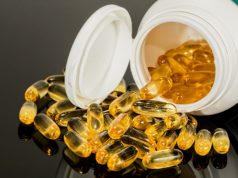A number of anti-cancer foods, spices and herbs stand out for their ability to fight this disease. Most are rich sources of flavonoids and carotenoids, which, among other functions, reduce oxidation (free radical damage) and inflammation—twin processes that promote chronic diseases, including cancer. Flavonoids belong to a broader chemical group called polyphenols, which provide multiple benefits for plants and those of us who eat them. Most foods and supplements that make health headlines—including fruits, vegetables, chocolate, tea and wine—are brimming with polyphenols.
Berries, cherries and grapes: These tasty, nutrient-dense fruits owe their deep, vibrant colors to flavonoids such as anthocyanins and proanthocyanins, which pack potent antioxidant, anti-inflammatory and anti-cancer effects. Red grapes also contain resveratrol, the same antioxidant found in red wine.
Complex carbs: Refined carbohydrates lead to spikes in blood sugar, insulin and insulin-like growth factors, which can stimulate tumor growth. But whole (unprocessed) grains, legumes and vegetables contain complex carbohydrates, which digest more slowly and contain fiber. Fiber may help bind potentially cancer-causing substances in the bowel, preventing their absorption into the bloodstream and helping to prevent colon cancer. Fiber consumption also supports healthy digestive microorganisms, which contribute to healthy immune function.
Cruciferous vegetables: This plant family, which includes broccoli, cauliflower, cabbage, rapini, mung beans, alfalfa sprouts and Brussels sprouts, among others, contains glucosinolates, compounds the body breaks down into anti-cancer substances. Animal and population studies link increased consumption of cruciferous vegetables with reduced cancer risk. Studies have found broccoli to be especially effective in fighting certain types of cancer.
Dark green leafy vegetables: Kale, collards, mustard greens, bok choy, arugula, watercress and maca are natural sources of minerals such as calcium and magnesium, both of which may protect against colon cancer. Women who eat more leafy greens have a reduced risk of breast cancer. Dandelion (Taraxacum officinale) and stinging nettle (Urtica dioica) brim with vitamins and minerals. Preliminary research suggests they also have anti-cancer activity. Note: Nettles must be cooked, dried or blended (as in a smoothie) to remove their sting. You can also obtain anti-cancer benefits from dried nettle and dandelion greens in the form of tea. Simply add one tablespoon herb per cup hot water, steep 15 minutes, strain and drink.
Seeds and nuts: These healthful snack foods contain vitamins, minerals, healthy fats and fiber. Increased consumption correlates with a reduced risk of certain cancers, particularly colon cancer. Flax seeds, sesame seeds, sunflower seeds and pumpkin seeds contain lignans, which our intestinal bacteria can convert into phytoestrogens (plant estrogens). Flax seeds, the richest source of lignans, may inhibit the growth of breast, colon and prostate cancer. Regular consumption of pumpkin and sunflower seeds has been linked with a reduced risk of breast cancer. Walnuts may also inhibit colon and breast cancer.
Tomatoes and tomato products are an excellent source of dietary carotenoids. They owe their red color to lycopene. Research associates regular consumption of tomatoes and tomato products with a reduced risk of prostate cancer and possibly breast cancer. Even a single serving of tomatoes or one tomato product a day may help protect DNA from damage. It’s best to obtain lycopene via your diet—whether lycopene supplements protect against cancer is controversial.
Legumes: In addition to being fiber-rich, legumes contain phytoestrogens. Soybeans contain a particularly rich source of phytoestrogens called isoflavones. While estrogen has been implicated in the development of breast and uterine cancer, phytoestrogens have much weaker stimulatory effects, and population studies link consumption of soy foods with a reduced incidence of breast, uterine, ovarian, prostate and colon cancer. Soy consumption also decreases growth factors that increase breast cancer risk.
One concern has been whether isoflavones present a risk for breast cancer survivors. Reassuringly, a large study of Chinese and American women found that soy food consumption correlated with a reduced risk of recurrence. While soy foods seem to be beneficial, some experts discourage against supplementing with soy protein or soy isoflavones.
Orange fruits and vegetables are rich in plant pigments called carotenoids, which protect against several types of cancer including prostate, breast, cervical, lung, ovarian, pancreatic, and gastrointestinal. Non-vitamin A carotenoids (lycopene, lutein, astaxanthin and zeaxanthin) protect against DNA damage. Orange vegetables (carrots, pumpkin, sweet potatoes, winter squash), orange fruits (cantaloupe, mangos, apricots, guava, goji berries) and the leafy greens mentioned earlier are all good sources of carotenoids.
Pomegranate extracts have been shown to inhibit the growth of breast, prostate, colon and lung cancers in cell cultures and animal studies. Extracts also protect against ultraviolet light-induced skin cancer. All parts of the pomegranate fruit—rind, pith and juicy seeds—have valuable chemicals and are edible. The seeds taste delicious alone, in salads and atop yogurt. However, the rind and pith, while edible, are bitter. Juice the whole fruit in a commercial juicer to benefit from the rind and pith’s active chemicals. You can also eat the pith whole or infuse water with the rind to make a tea.
[thrive_link color=’green’ link=’https://ahsn.wpengine.com/bailey-obrien-treatments/’ target=’_blank’ size=’big’ align=”]LEARN MORE ABOUT KILLING CANCER USING FOOD![/thrive_link]

























